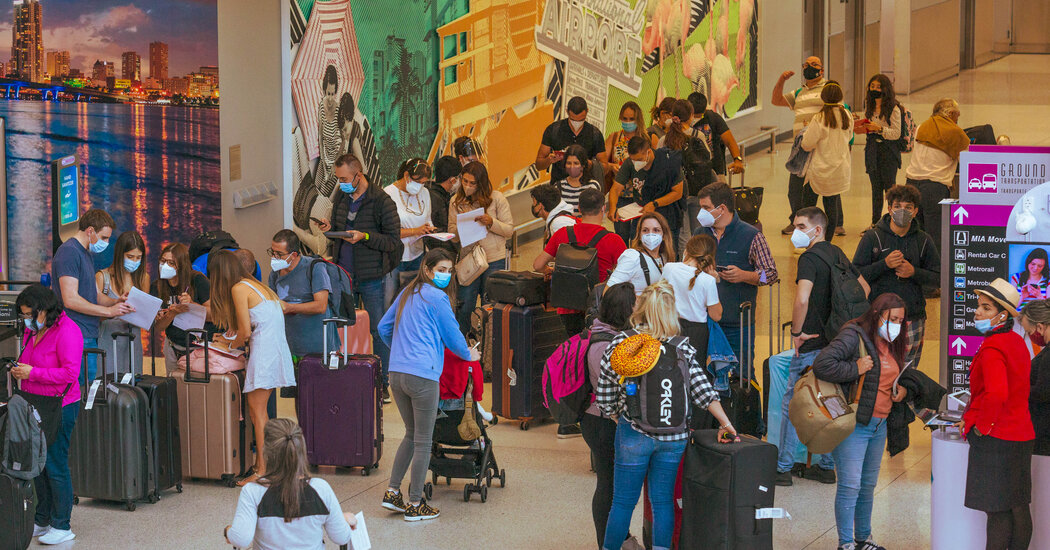
WASHINGTON — The Biden administration is developing plans to require all foreign travelers to the United States to be vaccinated against the coronavirus, with limited exceptions, according to an administration official with knowledge of the developing policy.
The plan, reported earlier by Reuters, will be part of a new system to be put in place after the current restrictions on travel into the country are lifted, but officials have yet to determine when that might be done.
President Biden has been under pressure for months to ease restrictions on people wishing to travel to the United States, particularly as other countries, including Britain and Canada, relax their measures.
But White House officials have said in recent days that there is no plan to lift current restrictions anytime soon, in light of the spread of the highly contagious Delta variant.
“Given where we are today with the Delta variant, we will maintain existing travel restrictions at this point,” Jen Psaki, the White House press secretary, told reporters last week.
White House officials reiterated that stance on Wednesday evening, saying there was no timetable yet for requiring foreign travelers to be inoculated.
One official, who was not authorized to give details of the plan to the public, said in an email that the new system would include a phased approach over time.
Travelers from Iran, China, Brazil, Britain, South Africa, India, Ireland and Europe’s Schengen area — spanning 29 countries, city-states and micro-states — are currently barred from entering the United States unless they are U.S. citizens or they spend 14 days before arrival in a country that is not on the Centers for Disease Control and Prevention’s prohibited list.
Airlines and other businesses have long called on the administration to lift or ease restrictions on foreign travelers to the United States, especially after much of Europe started to open to American visitors in June.
“The international markets where U.S. vaccinated travelers can go, particularly in southern Europe, we’ve had really strong booking interest,” Ed Bastian, the chief executive of Delta Air Lines, said last month, according to The Financial Times. “The problem is those markets are only one-way. The White House specifically is not willing to open up the U.S. marketplace to European or U.K. travelers, which is a source of frustration.”
Understand the State of Vaccine Mandates in the U.S.
While travel within the United States over the past week was down only about 14 percent compared with 2019, international travel remains down about 40 percent, according to Airlines for America, a trade association.
The United States began restricting travel by foreigners in January 2020, when President Donald J. Trump cut off some travel from China in the hope of preventing the spread of the virus. That effort largely failed.
But health officials pressed the Trump administration to expand travel bans to much of Europe during the first surge of the pandemic in the spring of 2020, and more countries have been added to the ban as the original virus and several variants have spread rapidly from country to country.
This week, the Biden administration said that it would keep in place Title 42, a public health rule that allows the government to turn back people attempting to enter the United States from its southern border.
The decision, confirmed by the C.D.C. on Monday, amounted to a shift by the administration, which had been working on plans to begin lifting the rule this summer, more than a year after it was imposed by the Trump administration.
The known total of global coronavirus infections surpassed 200 million on Wednesday, according to the Center for Systems Science and Engineering at Johns Hopkins University, a number fueled by the emergence of the Delta variant.
Niraj Chokshi contributed reporting.





